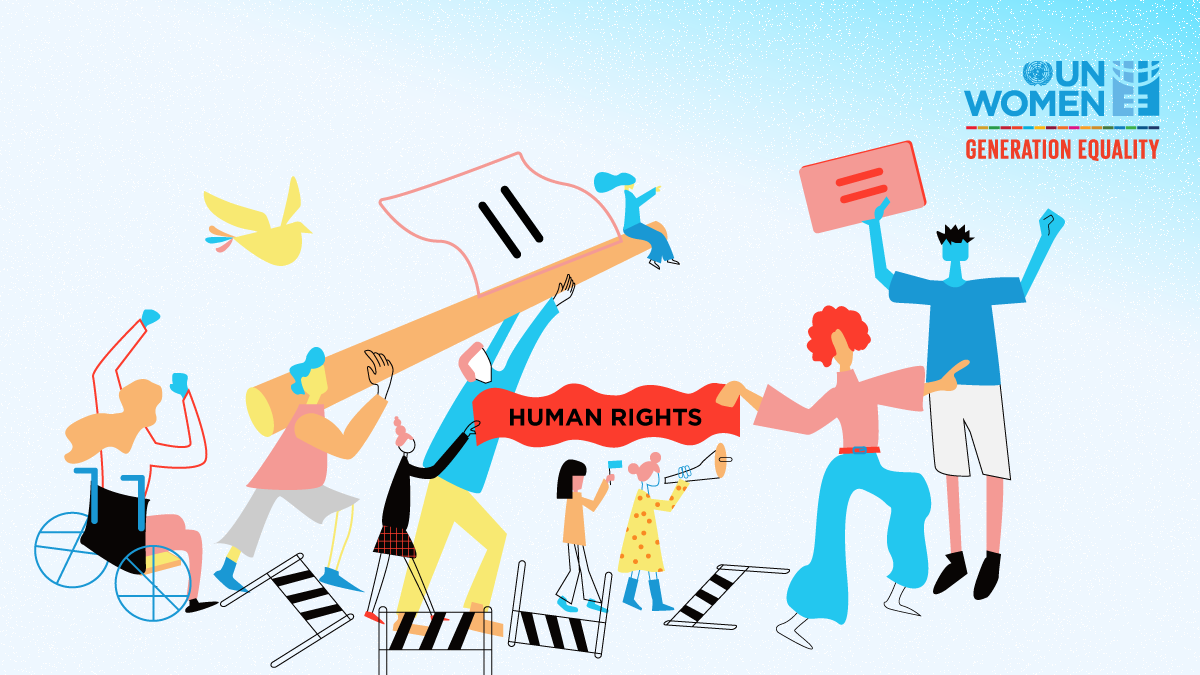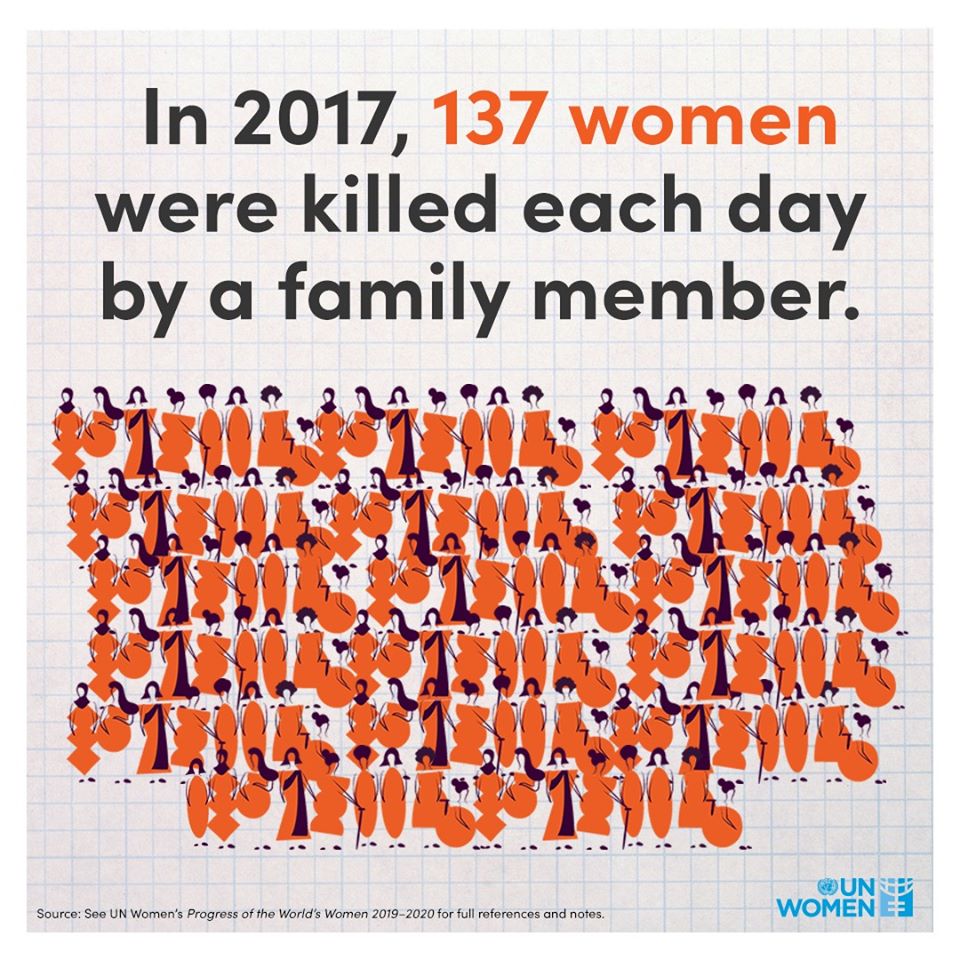16 Days of Action - The Workplace Can Help Support Victims of Abuse
From November 25 to December 10, individuals and organizations around the world have campaigned to call for the prevention and elimination of violence against women and girls.
The 16 Days of Activism Campaign kicked off on November 25, the International Day for the Elimination of Violence against Women, and runs until 10 December, Human Rights Day. It was started by activists at the inaugural Women’s Global Leadership Institute in 1991 and continues each year.

In recent years, survivors and activists have ensured the issues of sexual violence stay in the spotlight, and social media has greatly helped to elevate this cause. Campaigns such as “MeToo, #TimesUp, #Niunamenos, and #NotOneMore, among others, have helped prevent survivors from being ignored and silenced, while gathering support worldwide.
The workplace plays a key role in helping prevent gender-based violence and can also greatly support victims. Ensuring the workplace is free of discrimination and sexism, providing equal opportunities for all, having safety plans in place in situations of abuse, and providing accommodations for victims, there is no shortage of things an organization or business can do. During our 16 Days campaign, we heard how it is often a conversation with a co-worker that gives a woman the courage to disclose her abusive situations. We discovered that coworkers are among the top group of people who know the warning signs or are aware when a woman is being abused. And we know that violence often crosses into the workplace, meaning supports and accommodations can become life-saving measures.

We believe that by opening the doors of conversation and supporting survivors to come forward, that we can help eliminate gender-based violence while working toward solutions for change. Please share these messages so that we can all do our part in ending violence against women.
Day 1: Changing attitudes is never an easy thing but it’s crucial when it comes to ending gender-based violence. Hear how these attitudes can impact our day-to-day life.
– Hassan Yusseff, President, Canadian Labour Congress
Day 2: The workplace can both help prevent domestic violence and also provide victims with safety and security. A woman’s work can play a huge role in helping her leave an abusive partner.
– Dr Jane Pillinger, Global expert on Gender-Based Violence at Work.
Day 3: The idea that we should mind our own business & leave home issues at home is dated & we must change this idea. Instead, let’s try a new framework: See it, Name it, Check it. Workplaces can help victims of domestic abuse & even save lives. Find out in today’s video.
– Margaret MacPherson, Research Associate and Consultant
Day 4: Domestic violence is an enormous world-wide problem & there are no quick solutions. Anything we do must encompass the survivors, children & abusers, with the workplace playing a huge role.
– Dr. Peter Jaffe, Academic Director, Centre for Research & Education on Violence Against Women & Children
Day 5: Day 5 of #16Days: Abuse comes in many forms – physical, spiritual, emotional, psychological, and more. There are many red flags and we’re outlining some in today’s video.
- Julie LaLonde, Women’s Rights Advocate & Public Educator
Day 6: There are known risk factors & patterns & everyone needs to be informed about these to help prevent domestic homicides. Coworkers often see the warning signs before others so it’s critical there’s support at this level.
– Dr. Peter Jaffe
Day 7: Conversations with coworkers and support are often what leads women to find the courage to leave an abusive partner. Let’s ensure everyone in the workplace is properly trained on domestic violence.
- Dr. Jane Pillinger
Day 8: We know that it takes a survivor 5-7 attempts to disclose their experience with domestic violence, which means it’s absolutely crucial they have proper support from the workplace if they’re going to disclose.
– Dr. Adriana Berlingieri, Consultant, Educator & Researcher
Day 9: Why don’t women come forward to disclose of domestic abuse to their employers and coworkers? Stigma plays a large role. We need to get rid of the stigma surrounding domestic violence.
- Hillary Flett, Director, Harassment and Violence Prevention, Labour Program
Day 10: Workplaces can offer a unique safe and secure environment for victims while they’re trying to seek help or find resources to assist in leaving a violent relationship.
– Christine McCaw, Humber Institute of Technology & Advanced Learning
Day 11: There are big steps employers can take to help survivors of domestic abuse, like change of hours, unlisted hours & others. Violence isn’t just a physical presence and workplaces must understand this in order to help.
– Hillary Flett
Day 12: We’ve come a long way with support for survivors of domestic abuse, but we must include the abusers themselves in the solution. How do we talk to the abusers and help them change? It can be difficult but it’s vital when it comes to ending the cycle of abuse.
– Dr. Peter Jaffe
Day 13: Perpetrators are our coworkers, employees, managers, and even supervisors. We can’t simply remove them & hope the problem goes away. We need a better solution that doesn’t involve “zero tolerance”.
– Dr. Adriana Berlingieri
Day 14: Domestic abuse and homicides are often not seen as a public issues but they should be. We all need to be worried and asking the right questions to help us prevent future tragedies and learn from what happened.
– Dr. Peter Jaffe
Day 15: We all have an awesome opportunity to model and teach what a world free of violence and discrimination looks like. Don’t you agree? Let’s all do our part in helping end gender-based violence.
- Matt Sereda, Learning Equity Coordinator, Thames Valley District School Board
Day 16: Proper support, training for everyone, providing safe spaces and accommodations for victims, and asking the right questions. There’s something that all of us can do to end gender-based violence, and the workplace plays a key role in this. Our voices and actions have the power to create change. Ending violence against women starts with every single one of us. Watch our final video to get a glimpse into where we can start. Don't forget to share this video to inspire others!






